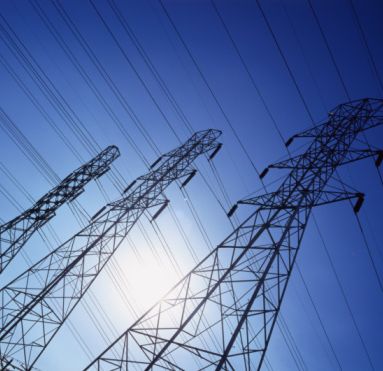 The Federal Energy Regulatory Commission (FERC) has ruled in favor of wind power in the Bonneville Power Administration's (BPA) highly contested decision to curtail wind and other forms of generation this spring during a period of hydropower oversupply.
The Federal Energy Regulatory Commission (FERC) has ruled in favor of wind power in the Bonneville Power Administration's (BPA) highly contested decision to curtail wind and other forms of generation this spring during a period of hydropower oversupply.
FERC ruled that BPA's actions unduly discriminated against wind energy and gave preferential treatment to hydropower when it opted to curtail 350 MW of wind generation instead of allowing water to spill over hydroelectric dams.
According to FERC, BPA's environmental redispatch policy ‘significantly diminishes open access to transmission, and results in [BPA's] providing transmission service to others on terms and conditions that are not comparable to those it provides itself.’
As a result of the ruling, BPA will no longer be allowed to use this policy, and must submit to FERC, within 90 days, a revised open-access transmission tariff that addresses the comparability concerns "in a manner that provides transmission service that is not unduly discriminatory or preferential," FERC said in its ruling.
BPA expressed disappointment with FERC's decision, and acknowledged that oversupply will continue to be a challenge in the region.
‘We are surprised and very disappointed that the Federal Energy Regulatory Commission would choose, at this moment, to render a decision when it is aware that we have been urged by many members of the Northwest congressional delegation to settle this issue, and when settlement discussions are proceeding in good faith," BPA administrator Steve Wright said in a statement.
"The temporary oversupply of energy is a Northwest challenge. We believe it is the region's responsibility to find the most appropriate way to address this challenge,’ he added.
FERC's ruling stems from a complaint filed by a coalition of Pacific Northwest energy companies against the BPA, accusing the agency of using its control of the region's grid to break its contracts and seize transmission rights.
The coalition includes wind developer Iberdrola Renewables, which lauded FERC's decision as a victory for the wind industry as well as power consumers. In fact, Iberdrola's president, Don Furman, states that BPA's actions were actually raising power prices, rather than avoiding cost increases to ratepayers, as BPA had claimed.
"BPA's policy, as we saw this past spring, was keeping prices higher for the power it was selling into the wholesale market – not protecting fish or maintaining reliability," Furman said in a statement. "FERC's ruling will stop this and other discriminatory practices, and allow all energy producers to compete on a level playing field.
At the time, BPA claimed its curtailment decision was necessary to protect salmon and steelhead, maintain the reliability of the power grid and avoid shifting costs to customers. However, a report issued this fall by salmon industry group Save Our wild Salmon (SOS) denies the validity of those claims.
The group says the report presents biological data showing that Columbia and Snake River salmon populations were largely unharmed by this spring's unusually high water and dissolved gas levels. Instead, SOS claims the BPA's actions did "little to nothing to protect salmon."
"We suspected it was inaccurate for BPA to use salmon as its scapegoat to shut off wind power this year," Nicole Cordan, SOS' legal and policy director, said in a statement. "Now, the actual biological data confirms that we were right and that the great majority of migrating salmon did okay, despite the large amount of spillover the dams."
"The wind power industry and salmon industries are mutually beneficial," added Pat Ford, SOS' executive director. "Allowing the river to flow more like a river is good for salmon, and provides more opportunity for renewable energy development."
Perhaps most importantly, the case represents the wider issue at hand: the lack of sufficient transmission capacity to integrate variable energy resources, especially wind power – an issue FERC recognized in its ruling.
"We note that the instant proceeding presents a clear example of the importance of transmission. Adequate transmission capacity is necessary to relieve constraints and reliably integrate new generation resources," FERC said. "With additional transmission or comparable alternatives, [BPA] may have the flexibility necessary to meet all of its obligations, including open access, and fully integrate the variable energy resources seeking to access its transmission system.’



